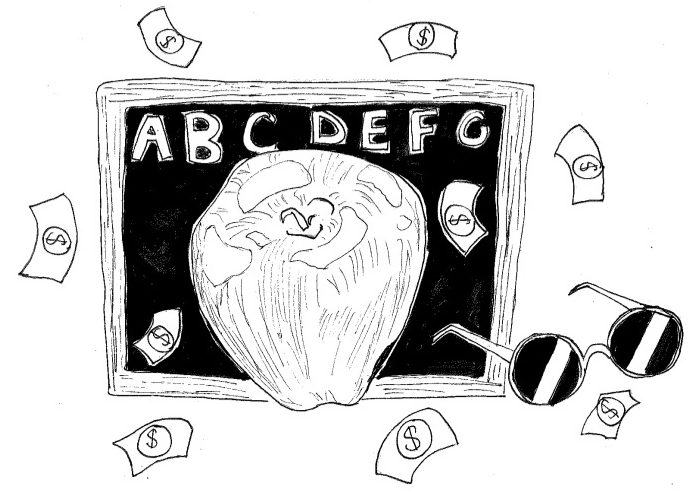The Key to Education Is Teacher Pay
January 30, 2018
Many experts feel that improving the education system is a significant way to combat poverty and joblessness. Improving schools requires great teachers, but if we want to recruit and retain more great teachers, we need to raise their salaries.
In 1970, new teachers in New York City public schools earned about $2,000 less than lawyers who were also just starting out, according to a 2011 New York Times op-ed. In 2011, teachers in NYC earned around $115,000 less than lawyers.
Cambridge needs to pay its teachers more, but so does the rest of country. If all school districts paid their teachers more, students would get better educations.
First, paying teachers more would help to elevate the teaching profession, and this is something that is desperately needed in America. Consider this anecdote from Aaron Bos-Lun, writing in Miami Today about his grandmother, a former high school teacher: “She lived in Asia for five years and says taxi drivers would shake her hand if she said she was a teacher. It is a highly respected position. In the United States, my grandmother never received such a handshake.”
Elevating the teaching profession is important for two reasons: More great educators will come into the field and stay there as they will feel more valued for the work that they are doing, and raising teacher pay also sends a message to students that education is a crucial element of our society.
With more great educators coming into the field, as well as more respect for education in general, the quality of education for students will rise. Many teachers feel dissatisfied with their jobs. One reason for this dissatisfaction is that they put in extra effort to get students where they need to be without recognition.
While paying teachers more is not the only thing to do to make teachers satisfied with their jobs, it is a token of recognition that is significant. Valerie Strauss points out in a Washington Post article that because of low-pay, many teachers in America have to take second jobs. When their attention is focused on these other commitments, they can’t possibly give the necessary energy to their students that they deserve.
During the 2015-2016 school year, the average teacher in Cambridge made about $82,409, according to data collected by the Massachusetts Department of Elementary and Secondary Education. But Cambridge competes with other communities in Eastern Massachusetts. Boston pays its teachers an average of $90,626 a year, and Brookline pays its teachers $93,72.
Cambridge spends $27,569 per pupil—the highest per pupil spending rate in the Greater Boston Area. If Cambridge can afford to devote this level of funding to each of its students, it can afford to pay its teachers more.
This piece also appears in our January print edition.










